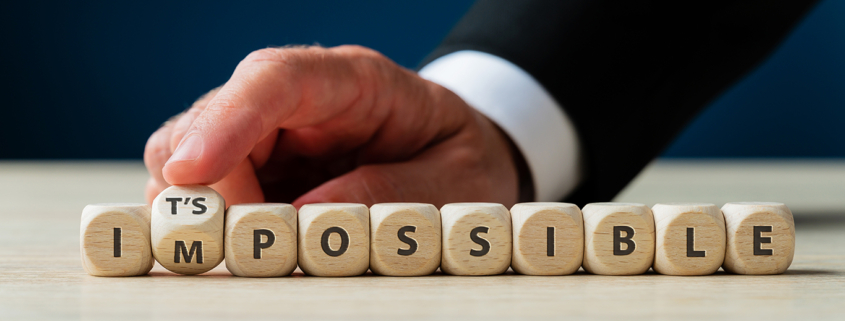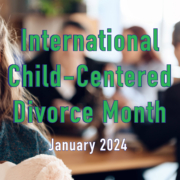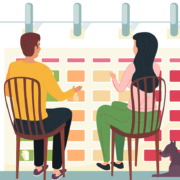Why Parent Mediation Should be Part of Your Neurodiverse Family’s Toolbox (Video)
Mediation isn’t just for separation and divorce.
It can be an important resource for parents with neurodivergent kids, to help them stay aligned with each other about important issues and decisions.
People often ask me why I became a mediator: Helping parents is my why.
In this video, I talk about ways mediation can be a resource to help parents prevent issues from escalating when they have trouble working through the sticking points on their own. I strongly believe that mediation can be a valued resource for parents wanting support in divorce prevention – that is, a means to help them mitigate the problems that result from poor, or in some cases, a lack of, communication.
The types of issues that can escalate because one or both parents feels that they are not being heard, that there isn’t space for their point of view, or that decisions are being made without their full participation.
Video Transcript:
If you are parents of neurodivergent kids, I bet you can list the resources you have to support your children’s needs.
But what about your supports?
Probably a much shorter list, I expect.
So parents, let’s talk about how mediation can be an important tool in your toolbox for you and for your kids that depend on you.
Hi, I’m Erik Feig, mediator and founder of Feig Mediation Group in Bethesda, Maryland. I’m also a parent in a neurodiverse family.
You might ask yourselves why you, the parents, need a support network? Your children are the ones who need help. Your focus is on them.
But the truth is that parents need resources too, especially when you’re parenting in a neurodiverse family.
As a mediator, what do I do? I help parents when there are important issues and decisions on the line and they feel stuck. They’re not on the same page and they don’t know how to get there. Or worse, they disagree in ways that divide them from each other. I provide a process that’s structured so that they can have the discussions that they need to have in a way that keeps them focused on what’s their best solutions- instead of trying to win the battle of who’s right.
Parents will have different views of what’s best and they will disagree. We all do.
That’s normal.
But the question isn’t about whether you disagree, it’s about HOW you disagree and HOW you get through to the other side.
You see, it’s the “how” that’s the key. And so often I find it’s not the difference of opinion that’s the issue. It’s how you find ways to connect the dots.
When people ask me what inspired me to become a mediator, I tell them so much of it is autobiographical.
It starts with my family and my three neurodivergent kids.
You see, in my family, like so many that have kids that are differently wired (which by the way, is a term I like and we use quite a bit), we support a buffet of differences, which include both strengths and challenges, learning differences, social emotional regulation issues, executive function challenges, processing issues, and well … the list goes on.
Each of our kids is different from the others and each of them has different strengths and areas needing significant specialized attention and support.
So, as parents, finding ways to support all of this and keep our kids, our family, and ourselves on track is, well, complicated. Sometimes it can feel overwhelming.
There are so many opportunities for us as parents to fall out of sync with each other, even while we’re both trying to do what we believe is best for our family. And when we, as the parents disagree or have different ideas or strongly held beliefs about what to do or how things should be, we get stuck, too. And our being stuck can affect the whole family.
When you are feeling like there’s barely, barely enough time to catch your breath, having the discussions that you need to have to find common ground so that we can stay in sync and doing it in a way that’s constructive, that can be hard to do without help.
When we are feeling stressed-out or tired, it’s so easy for discussions to fall into patterns that may, if we’re fortunate, resolve the immediate issues, but at the same time, not help our relationship, our connection, our teamwork long term.
And what happens when we feel like we’re not really being heard or our ideas are not being valued, we get frustrated. We get angry, we get resentful.
I know I do.
The discussions can become about us and who wins instead of about the issues, those decisions, the best answer that will work for all of us, what brought us to the conversation in the first place.
All of this can become divisive, so this is where parent mediation can help.
Mediation offers a process designed to help you have those conversations that can be so hard to have on your own. And as a mediator, I can provide the bumpers. I get to provide the bumpers to help you keep focused and keep things on track when, for whatever reason the discussions go in directions that aren’t helpful, so that you can problem solve together.
In mediation, I get to help you connect the dots as a team, instead of compete with each other.
When you’re working so hard to keep your neurodiverse family on track, mediation can be that oh-so-important, missing and overlooked piece. The piece that helps us, as parents, make important decisions together for our kids and with each other.
So if you’re interested in learning more about how mediation can help you as parents of neurodiverse kids, or you wish to set up a consultation for a situation that you’re dealing with or you expect you will have to deal with, visit our website to set up an appointment at www.feigmediationgroup.com.
I’m Erik Feig. Thanks for joining me. I look forward to seeing you again soon.












